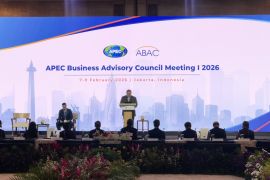The STEM Principles and Actions were prepared and endorsed by the APEC Policy Partnership for Science, Technology, and Innovation, according to a written statement received here on Wednesday.
The APEC Policy Partnership invited the private sector, academia, and civil society institutions within the APEC region to voluntarily adopt the principles and actions to support the advancement of women and girls in STEM fields.
According to the APEC Women and the Economy Dashboard 2019, women’s representation among STEM graduates in the region is well under 50 percent and as low as 13 percent in some APEC economies.
Many obstacles hinder women’s abilities to partake as innovators in the knowledge economy and compete on a global scale. Although APEC economies are leaders of innovation and economic growth, more contribution from women can expedite progress.
Related news: APEC pushes for universal health coverage at UN high-level meeting
The Principles and Actions, launched at the 2019 APEC Women and the Economy Forum and jointly proposed by the United States, Australia, and Chile, are the outcome of consultations, sharing of best practices, and economic case studies, conducted under the APEC Women in STEM Initiative launched in 2016.
"More engagement of women in STEM benefits us all. Women’s participation helps grow our economies, improves our science and technology, and leads to more innovation," U.S. Principal Deputy Assistant Secretary in the Bureau of Oceans and International Environmental and Scientific Affairs Marcia Bernicat explained.
The APEC Women in STEM Principles and Actions outlines three principles.
The first principle identifies the crucial role of women in the economy and the significance of their inclusion to develop innovations and technology, particularly those used by women. Actions that can support this principle include offering lifelong education, training, and mentoring for women and girls in STEM; support for women-led businesses; and raising public awareness on the value of promoting women in STEM.
The second principle champions for amplifying and portraying the accomplishments of a diverse group of women in STEM along with stepping up women’s participation. Supportive actions can entail examining the gender disparity in leadership positions and accruing and sharing sex-disaggregated data related to STEM education and careers.
The third principle prioritizes identifying and addressing the social, cultural, and economic barriers facing women and girls in STEM. Vital actions entail creating a conducive environment through interventions not restricted to removing legal and regulatory barriers.
"The economy of the future will favor proficiency and expertise in STEM. Women and girls must play an equally important role in growing the economy and their own potential," Chair of the APEC Policy Partnership for Science, Technology, and Innovation Leon-Velarde Servetto stated.
Related news: APEC strives to bolster health ethics to support SMEs, patients
Related news: APEC pledges to advancing inclusion via digital transformation
Reporter: Yuni Arisandy Sinaga
Editor: Sri Haryati
Copyright © ANTARA 2019












